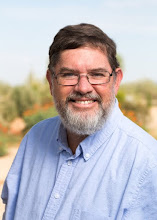This week, the free and independent United States of America marks the 236th anniversary of that perilous moment when a band of patriots, devoted to a belief in the inherent right of people to govern themselves, announced they would no longer recognize the authority of the British crown.
My annual Independence Day tradition is to re-read the words of the Declaration of Independence. We often hear during this season the inspiring words penned by Thomas Jefferson about “all men are created equal.” But how often do we read the closing words of the Declaration of Independence?
“We, therefore, the representatives of the United States of America, in General Congress, assembled, appealing to the Supreme Judge of the world for the rectitude of our intentions, do, in the name, and by the authority of the good people of these colonies, solemnly publish and declare, that these united colonies are, and of right ought to be free and independent states…And for the support of this declaration, with a firm reliance on the protection of Divine Providence, we mutually pledge to each other our lives, our fortunes and our sacred honor.”
A couple of phrases jump out at me when I read this: “appealing to the Supreme Judge of the world…” and “we mutually pledge to each other…”
In a time when the divine right of kings was accepted as the natural order of things, these bold men and women answered to a higher calling – yes, higher than a king – to stand up for the idea of citizenship inherent in human beings. And they did so in comradeship with one another (“we pledge to each other”). The composite meaning of these two ideas – asking for the wisdom of God to guide them, while recognizing that they were all in this together – is a powerful lesson for us as citizens today. We are the inheritors of this bold gift. How do we live these values today?
In my view, this composite forms the very meaning of citizenship and civic engagement: answering a higher calling in comradeship with your fellow citizens. Both ideas are important. This is not just about private faith: belief that a higher being will grant you salvation, or protect you, or whatever you may believe about the nature of spirituality inside you. That idea has a place in our private lives, but the calling described by Jefferson was not private. He moved the calling into the public realm. We “pledge to each other” our lives, our fortunes and our honor to live the values of citizenship and defend them. The public commitment made by these courageous could is the true legacy of that moment of independence.
One reason I am so passionate about the role of the nonprofit community in our lives is that I believe we form nonprofits to realize the full potential of citizenship. Nonprofits are infused with the values in those words of the Declaration: we “appeal to the Supreme Judge of the world” to guide our work, which we can only carry out in concert with our brothers and sisters. And when government, even in its democratic form, fails to live up to these values, we associate with one another through nonprofits to bring that government back to its founding values.
This idea of a nonprofit places the civic role of our organizations front and center in service to our missions. Over the years, nonprofits have taken on many and diverse roles as services providers and servants to community needs. And these roles are important, for they allow people to organize themselves to serve their neighbors. But sometimes an emphasis on the service function shifts our attention away from the essential idea of a nonprofit as a vehicle for citizenship and civic engagement. We are not private entities, concerned only with a narrow population. We are part of the civic fabric that was first woven by those courageous founders 236 years ago.
In our daily, modern lives it is easy to take for granted what these patriots did for us. And it is easy to lose sight of the fact that, as nonprofit leaders, we inherit the mantle of faith in the inherent right of citizenship that those patriots handed to us.
Are you thinking about your role as a nonprofit leader in this way? Are you thinking every day about your organization’s fundamental role as a vehicle for civic engagement? If not, you are letting down the Founders.
In this election year, I hope that we the nonprofit community fully realizes our potential as engines of civic engagement and champions of citizenship. Let us “mutually pledge to each other our lives, our fortunes and our sacred honor” to fulfill the fondest hopes of the Founders of our great nation who fought for us and believed in us those many generations ago.
Monday, July 02, 2012
Subscribe to:
Posts (Atom)

